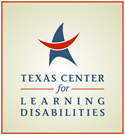Description
There is considerable controversy about the necessity of cognitive assessment as part of an evaluation for learning and attention problems. The controversy should be adjudicated through an evaluation of empirical research. The authors review five sources of evidence commonly provided as support for cognitive assessment as part of the learning disability (LD) identification process, highlighting significant gaps in empirical research and where existing evidence is insufficient to establish the reliability and validity of cognitive assessments used in this way. They conclude that current evidence does not justify routine cognitive assessment for LD identification. As an alternative, they offer an instructional conceptualization of LD: a hybrid model that directly informs intervention and is based on documenting low academic achievement, inadequate response to intensive interventions, and a consideration of exclusionary factors.
Citation
Fletcher, J. M., & Miciak, J. (2017). Comprehensive cognitive assessments are not necessary for the identification and treatment of learning disabilities. Archives of Clinical Neuropsychology, 32(1), 2-7.
